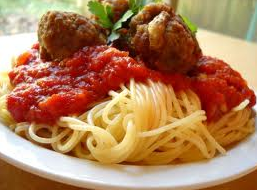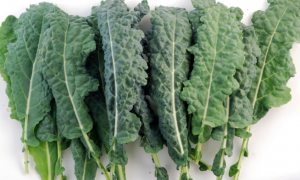13 Feb Insulin – Everything YOU Need to Know
Insulin – What is it, and HOW is it effecting YOUR health and body weight?
 When people hear the word ‘insulin’ they mostly associate it with diabetes and don’t pay much attention to what it means to their own body. Insulin gets a ‘bad rap’ because of its direct association with diabetes, but insulin plays a BIG role in EVERY body! Insulin is responsible for determining whether you are storing or burning fat, your energy levels, your mental awareness, athletic performance, and even the possibility of chronic disease! Soooooo…understanding insulin is VERY important to your health!
When people hear the word ‘insulin’ they mostly associate it with diabetes and don’t pay much attention to what it means to their own body. Insulin gets a ‘bad rap’ because of its direct association with diabetes, but insulin plays a BIG role in EVERY body! Insulin is responsible for determining whether you are storing or burning fat, your energy levels, your mental awareness, athletic performance, and even the possibility of chronic disease! Soooooo…understanding insulin is VERY important to your health!
What is insulin anyway? Insulin is a hormone secreted by the pancreas when you have eaten carbohydrates. Have you ever eaten a big pasta meal, and wanted to take a nap a few hours later? Have you ever started eating chips or crackers and you just couldn’t stop? If you have experienced one or both of these situations, you have EXPERIENCED what an insulin spike can do to you. More on this later…
 What does insulin do?– In simple terms, when you eat carbohydrates, they are absorbed into the blood stream (as glucose) which in turn elevates your blood sugar levels. The pancreas secretes insulin to help your body process the increased blood sugar (glucose) and store it as glycogen in your muscles and liver. If the glycogen stores in your muscles and liver are full, then the ‘excess’ blood sugar is stored as body fat! If your body is secreting insulin, it is in a ‘storing’ process, and NO body fat will be burned.
What does insulin do?– In simple terms, when you eat carbohydrates, they are absorbed into the blood stream (as glucose) which in turn elevates your blood sugar levels. The pancreas secretes insulin to help your body process the increased blood sugar (glucose) and store it as glycogen in your muscles and liver. If the glycogen stores in your muscles and liver are full, then the ‘excess’ blood sugar is stored as body fat! If your body is secreting insulin, it is in a ‘storing’ process, and NO body fat will be burned.
Back to our big pasta meal. When we ate that meal, we had a large flood of carbohydrates which led to a big spike in insulin secretion. Since insulin’s job is to ‘lower’ blood sugar, it does just that. But because of the huge insulin spike, it can lower blood sugar a bit too much, and that is when you feel drowsy, tired, and generally like you need a nap!
Along those same lines, when you nibble on crackers, chips, or other carbohydrate rich ‘snack’ food, you get a steady release of insulin. This steady release of insulin keeps lowering your blood sugar, which in turn tells YOU to keep eating to get it back up! Now you know WHY you just couldn’t put those ‘fat free’ crackers, chips, and crisps down!
What does fat have to do with insulin? Carbohydrates are directly tied to your insulin levels, but fats have a role in this as well. If you are eating healthy fats with your meals, these fats will S-L-O-W the digestion of carbohydrates which will slow the rise in blood sugar which will keep those insulin spikes at bay.
 What is a healthy fat? A balance between Omega 3 (from fish oil) and Omega 6 fats (found in vegetable oils; corn, sesame, safflower, peanut etc…). We naturally get enough, often too much Omega 6 fats in our diet. To have a proper balance, you have to be conscious of and increase your Omega 3 intake which can be found in fish, wild meats, and grass fed beef. An easy way to get these is from fish oil supplements.
What is a healthy fat? A balance between Omega 3 (from fish oil) and Omega 6 fats (found in vegetable oils; corn, sesame, safflower, peanut etc…). We naturally get enough, often too much Omega 6 fats in our diet. To have a proper balance, you have to be conscious of and increase your Omega 3 intake which can be found in fish, wild meats, and grass fed beef. An easy way to get these is from fish oil supplements.
If you are eating BAD fats (trans-fats) or you are not eating the proper balance of omega 3 and omega 6 fats, your cells won’t be able to convert the blood sugar easily, leading to insulin resistance.
What is insulin resistance?– Insulin resistance is when your cells are less affected by insulin and your blood sugar (from carbs you have eaten) can’t move freely into your body’s cells to be either burned or stored. As a reaction your pancreas secretes more insulin and you have both high levels of glucose (blood sugar) and insulin circulating in your body with neither of them going to where they are SUPPOSED to be. High levels of insulin trigger the production of stress hormone, cortisol along with blood sugar will be turned into body FAT. Insulin resistance negatively effects body fat (especially belly fat) increases the risk of cardiovascular diseases, hormone health, including testosterone. In men, lower testosterone levels are associated with higher body fat, less lean muscle mass, lack of sexual desire, and overall poor health. Insulin resistance ultimately will turn into Type 2 Diabetes. However, insulin resistance is NOT a constant and can be improved with nutrition and exercise!
What you can do to improve your insulin health:
Improve your diet by eating more protein, less starchy-carbohydrate foods, and healthy fats at each meal. Protein is VERY important because protein secretes a hormone that is basically the opposite of insulin, and it’s job is to raise blood glucose levels. The hormone is glucagon, and it raises glucose levels by RELEASING stored energy. This releasing of energy into the blood stream is how body fat is burned. If insulin is being secreted, you are storing energy. If glucagon is secreted, you are releasing energy. So, if you want to keep insulin at bay, make sure you are consuming protein and healthy fats at every meal.
 Eat low glycemic carbohydrates such as: Vegetables- kale, broccoli, lettuce, cabbage, cauliflower, mushrooms, green beans, asparagus, cucumbers, spinach, peppers, zucchini
Eat low glycemic carbohydrates such as: Vegetables- kale, broccoli, lettuce, cabbage, cauliflower, mushrooms, green beans, asparagus, cucumbers, spinach, peppers, zucchini
Fruits- strawberries, blueberries, raspberries, cherries, blackberries, nectarines, avocado, grapefruit, tomatoes
Grains- steel cut oats, whole grain breads
Increase physical activity – Make sure you are doing cardio and strength training exercises. On a daily basis, make sure you are lifting weights, doing interval training, speed walking, jogging, running, elliptical, cycling, stair climbing, or whatever gets your heart racing and sweat going!
There you have it – Hopefully you have a better understanding of insulin and the role it plays in your life! I know things might have gotten a bit complex there, but trust me, it is really easy. Just make sure you are eating healthy fats and protein with your carbohydrates, and you should FEEL a difference!

